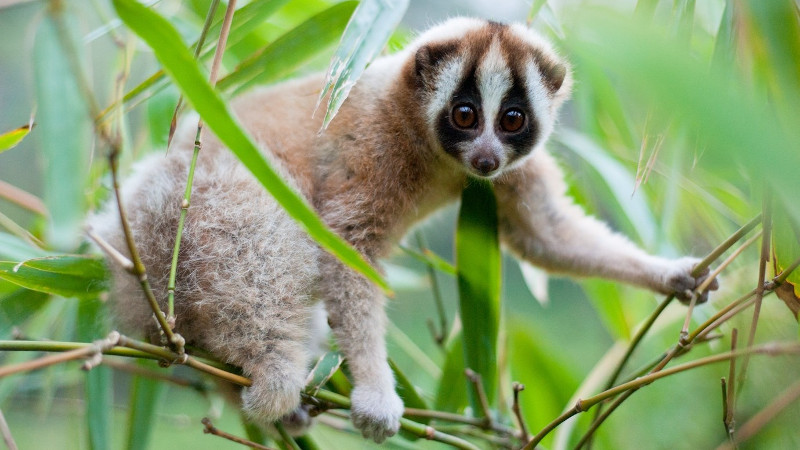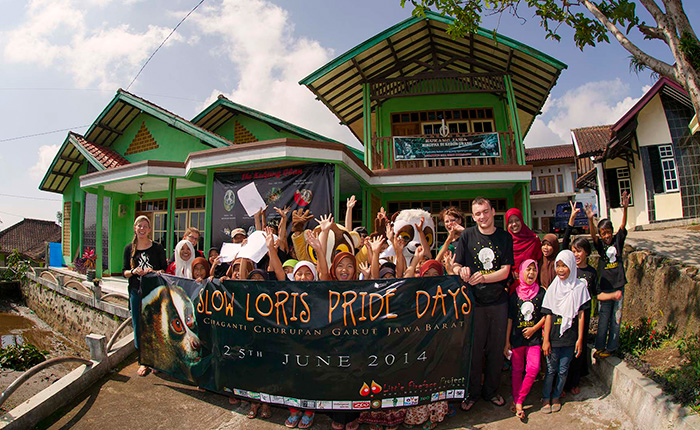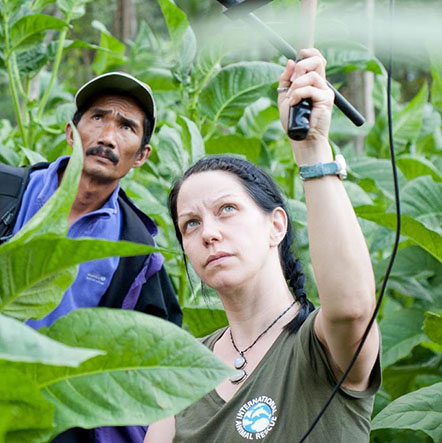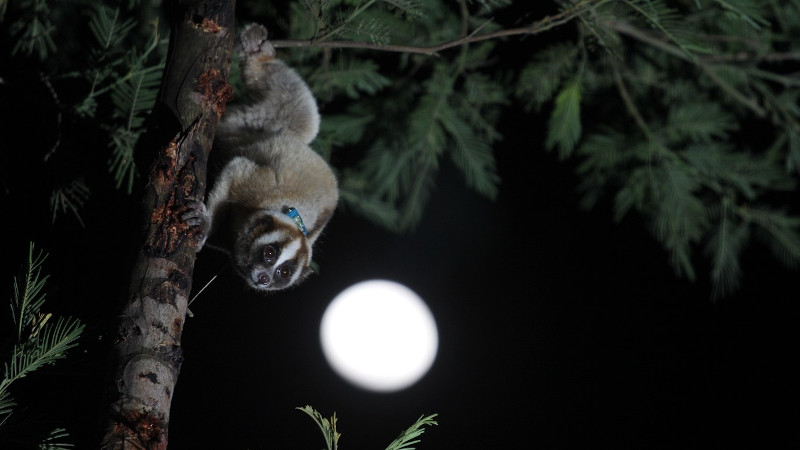Slow lorises are nocturnal primates found throughout Southeast Asia. They are incredibly cute; have unusual behaviours including ultrasonic calls, unique yoga-like locomotion, an ability to enter torpor, and eat rare diet of tree gums; and they are the only venomous primates. They are also among the rarest primates on earth. Traded for pets, medicines, photo props and black magic, they are traded domestically as well as advertised via almost all of the world’s social media sites, where illegally smuggled animals are paraded as pets.
Through our Little Fireface Project, we are leading the first ever long-term study of slow lorises in the wild, which we began in 2011. Each night, our team follow slow lorises in the jungle, and each day, we run community conservation projects, conservation education programmes, and conduct surveys of wildlife trade. We also support projects in all loris range countries through on the ground research, guidance, training and providing a range of online resources. Finally, we run campaigns and use social media to tackle the international pet trade. We use all our data to help governments identify and tackle trade.








